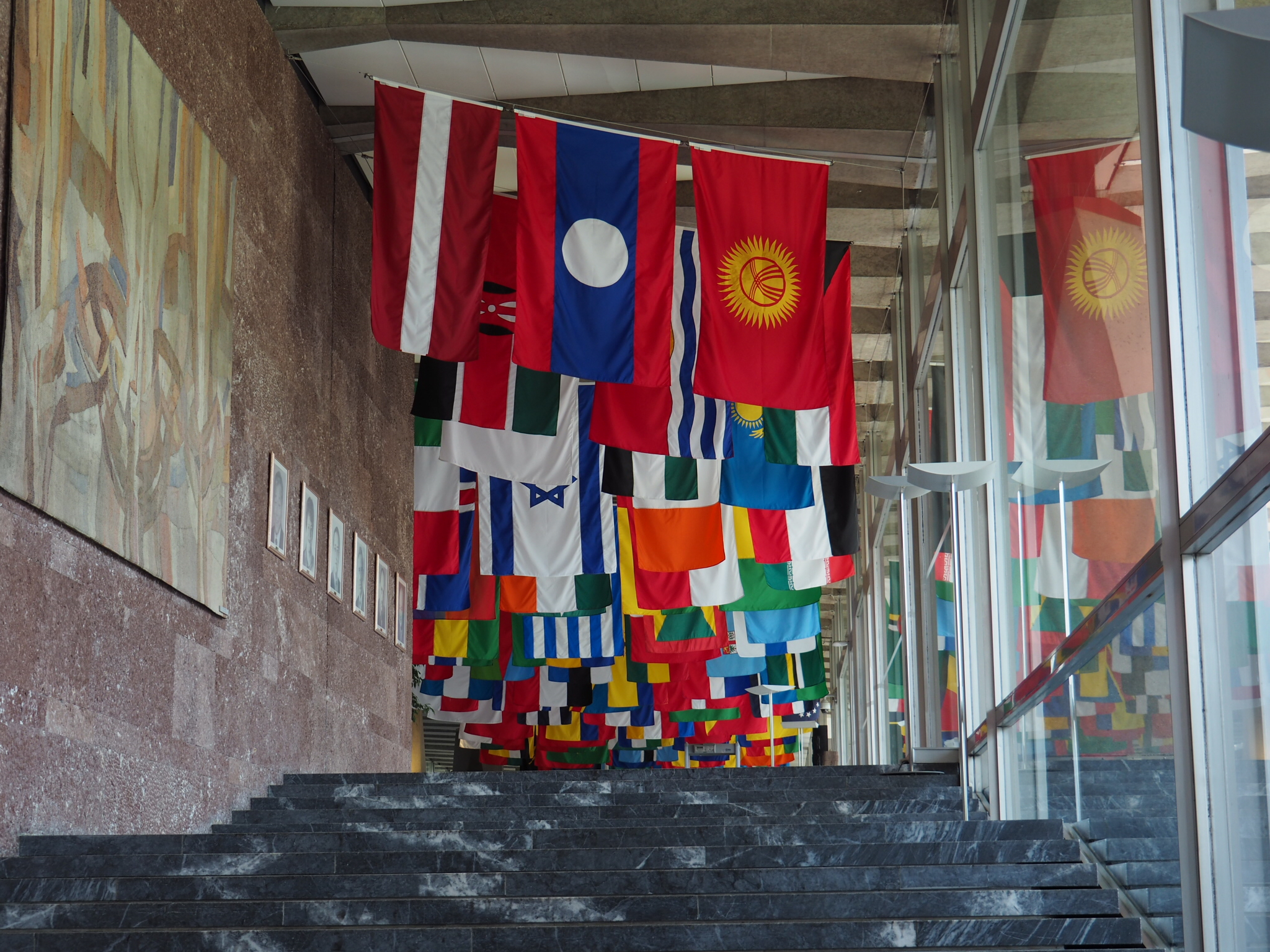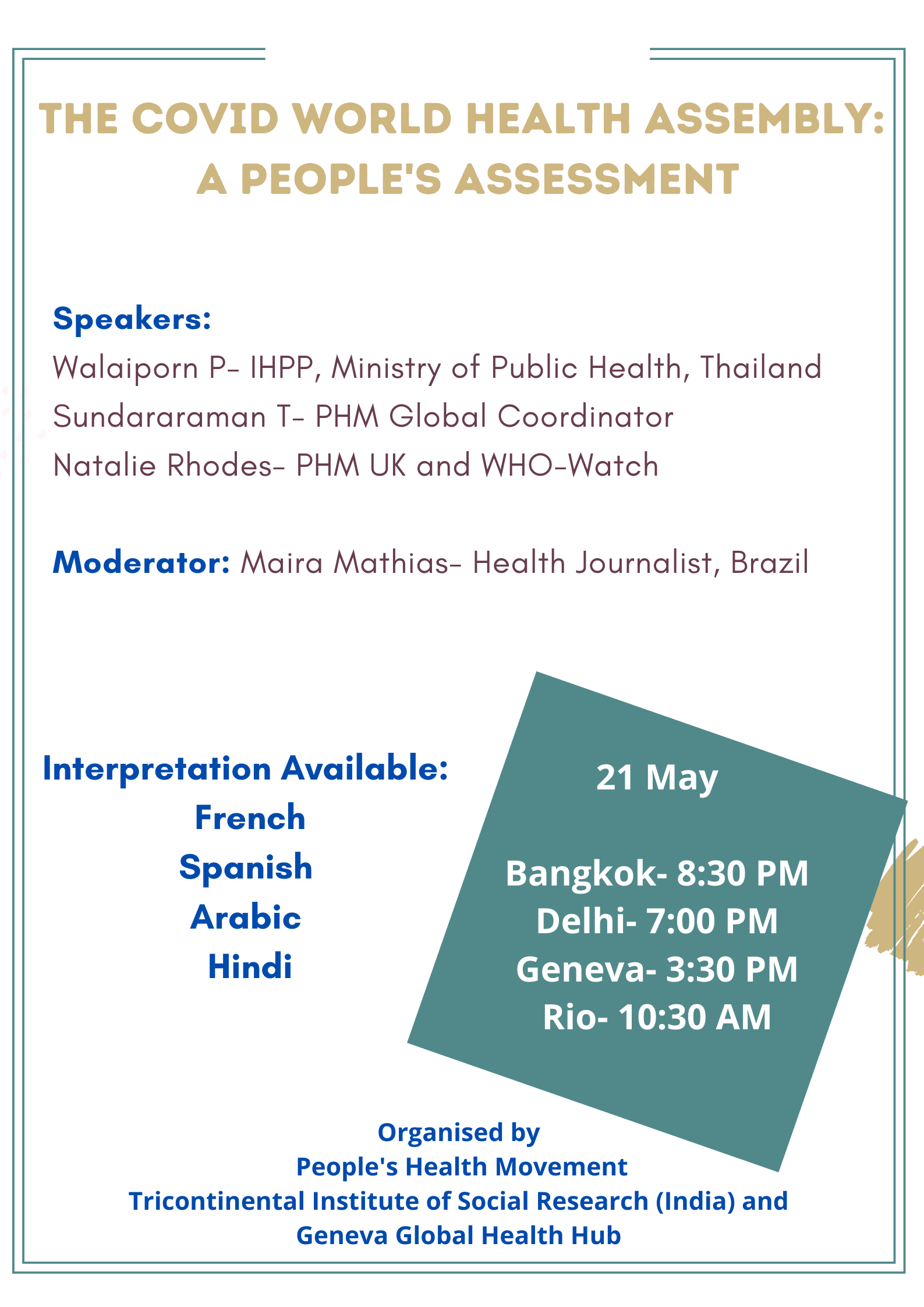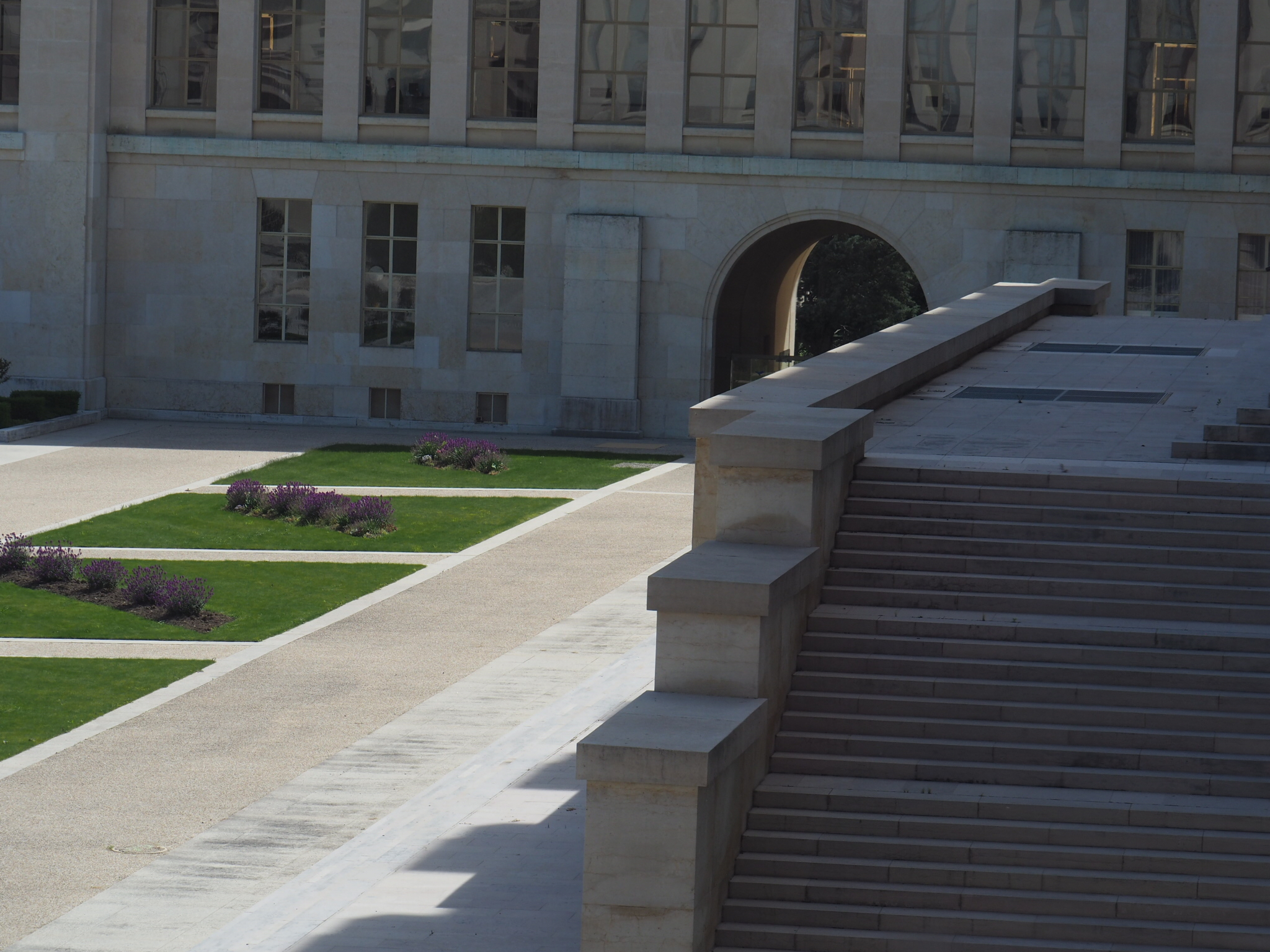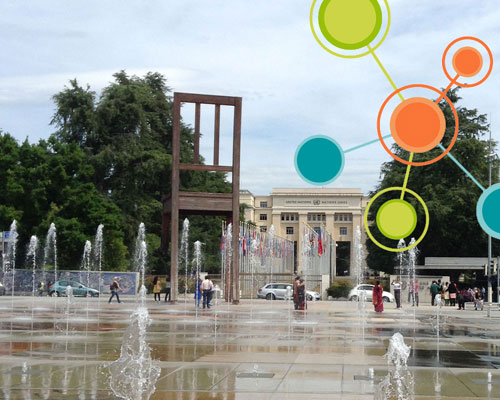G2H2 Civil society meeting ahead of WHA73
Friday, 15 May 2020, 15.00-17.30 hrs CEST
A World Health Assembly in times of a dual crisis: Covid-19 and the collapse of multilateralism as we have known it
With the WHO at the heart of a fierce geopolitical tension between the US and China, and large in-person meetings banned in Geneva for the time being due to the Coronavirus crisis, it has been decided that WHA73 and EB147 will both be held “virtually”, using video conference technology. Non-State Actors can upload statements but not present them in these proceedings. According to the WHO Secretariat, both meetings will entirely focus on Covid-19 and elections of EB members. Other technical issues are postponed.
As civil society actors, we need to adapt ourselves to Covid-19 uncertainties, but this new (temporary?) normal will hopefully enhance our ingenuity. Since we cannot meet in person for the usual G2H2 civil society meeting before the WHA in Geneva, the G2H2 Steering Committee has agreed to use this opportunity to also convene in the virtual space.
The civil society meeting on 15 May will allow members of the Geneva Global Health Hub and other civil society colleagues to share their views of the World Health Assembly in the current crisis of multilateralism that is accentuated by the Covid-19 pandemic. The discussion will be structured along two (interrelated) thematic fields:
- Looking ahead to WHA73: Can the World Health Assembly uphold its status as the most relevant forum to negotiate global public health particularly in a major global health crisis?
- Beyond the World Health Assembly: How successfully is WHO defending and shaping its role as the “leading and coordinating global health authority”? Or is the Covid19 pandemic the last straw for this multilateral institution in the middle of a wider crisis of multilateralism?
Each thematic field will be introduced by initial inputs (G2H2 members and/or invited guests), followed by a moderated democratic discussion among all participants who want to contribute.
Despite the challenges of a video conference platform, we hope to safeguard some of the “brainstorming” character of G2H2 civil society meetings, and have therefore set it up as a closed meeting that will not be broadcast and with access to civil society only. The meeting with focus on civil society strategizing and will need registration ahead of the event.
Programme
15.00 Welcome
15.05 – 16.30: First session
Can the World Health Assembly uphold its status as the most relevant forum to negotiate global public health particularly in a major global health crisis?
After the US President’s attack on the World Health Organization, member states, public health experts and civil society rallied behind the WHO, highlighting and acknowledging the WHO’s role as provider of sound public health guidance in managing the Covid-19 crisis and being much more responsive than in the Ebola outbreak 2014 in West Africa.
However, national governments have not respected WHO guidance, particularly in the preparedness for, and response to the global crisis once it was declared a public health emergency of international concern on January 31. The existing instrument for dealing with global health emergencies, the International Health Regulations, obviously lacks an enforcement mechanism.
We all are fully aware of the political and economic determinants of health, health systems and health politics. However, with the Covid-19 pandemic, the trend to “politicize” global health policy, in a sense of using and framing it for political gains, has become more overt.
We might see a WHA73 further dominated and distorted by the polarity (new Cold War?) between the US and China, with the Taiwan issue (proposed resolution requesting Taiwan’s observer status) and the demand for an “independent investigation into the origin of the Covid-19 virus” as another proxy battlefield.
But we also see an EU proposal for a general Covid-19 resolution that has triggered intense negotiations among WHO member states and a flurry of critical comments and suggestions by civil society and experts on how to deal with this pandemic and practice global solidarity in times of Covid-19, including controversial issues such as access to Covid-19 medicines, vaccines and diagnostics, whilst safeguarding human rights. Hopefully, such urgent policy debates on “what needs to be done” and “how to do it” to overcome the pandemic will remain at the core of the World Health Assembly.
Panel
- Introduction: Andreas Wulf, medico international, G2H2 president
- Guest speaker: Priti Patnaik, journalist
- Moderation: Mareike Haase, Bread for the World, coordinator of G2H2 working group on WHO and global health governance and financing
Discussion: Leading questions
- What to expect from the World Health Assembly? And what is the place of civil society?
- How to critically assess the “political” in global health? Is the current politicization of the debates helping or hurting WHO’s authority in the global health arena?
Updates: WHA advocacy plans
- The session will close with updates by civil society organizations on their particular advocacy plans for/around the World Health Assembly.
- Time will be limited, and most probably not all who are interested to provide an input will have the opportunity to do so.
- If you like to contribute, please prepare to provide a very short (1-3 Minutes) input and raise your hand to show your interest (only when asked to do so)
- And/or post your update (with/without link to a reference document or website) on the meeting chat that will remain open during the break.
16.20 – 16.30: Break
The chat will remain open.
16.30 – 17.30: Second session
Beyond the World Health Assembly: How successfully is WHO defending and shaping its role as the “leading and coordinating global health authority”?
Multilateralism can be understood as countries’ membership in democratic international (UN) institutions that serve to negotiate and find common solutions to global issues, bind all and particularly the powerful nations, to global agreements and treaties, discourage unilateralism, and give small nations a voice and influence that they could not otherwise exercise.
This UN multilateralism was in a crisis even before the Covid-19 crisis, including in global health, where the entry of competing actors and initiatives has muddied its governance and legitimacy. This development has side-lined, intentionally weakened and crowded out the WHO as the mandated multilateral institution for global public health. Private sector entities are now invited to every multi-stakeholder platform and public private partnership as the uncontested model for solutions to the world’s problems.
The Covid-19 crisis has brought WHO to the forefront of global health politics, raising new geopolitical controversies about the autonomy and policy mandate of this UN specialized agency vis-à-vis other global actors and its member states.
Do these controversies present an opportunity for revived multilateralism with a stronger role of WHO in the global health and foreign policy arena? Or is the “real music” playing to the tunes of EU and G20 together with the World Economic Forum and philanthropic foundations, and with the WHO as mere convener and facilitator (if ever) and the WHO DG only a symbolic figurehead?
Panel
- Introduction: Nicoletta Dentico, SID, G2H2 SC member
- Guest speaker: Nadia Urbinati, Colombia University
- Moderation: Remco van de Pas, MMI Network, G2H2 SC member
Discussion: Leading questions
- What multilateralism and what WHO are we defending, as civil society?
- How should we address the current shortcomings and cracks of multilateralism, e.g. the dominance of the economic elites, the lack of civil society access, and the uncontested participation of authoritarian regimes?
- What would be the basic elements of a civil society political strategy advocating for international health cooperation and solidarity, democratic multilateralism, and a strong, pluriform, United Nations?
A closed civil society meeting, and a protected space
The meeting is set up as a protected space for civil society brainstorming and strategizing and will therefore not be broadcast or recorded.
In the meeting we will request participants to follow Chatham House Rules: information and positions disclosed during the meeting may be reported by those present, but the source of the information may not be explicitly or implicitly identified. So do not quote statements, but feel free to provide general insights into our debate, e.g. via Twitter, using #WHA73.
Contact for enquiries:
Thomas Schwarz, G2H2 Secretariat
info@g2h2.org

Contact for enquiries
Thomas Schwarz
G2H2 Secretariat
info@g2h2.org

The Covid19 World Health Assembly: A People’s Assessment. Webinar on Thursday 21 May 2020, 15.30 CEST
The World Health Assembly 2020, which was held amidst the challenges posed by the COVID 19 pandemic, concluded on May 19. The two-day virtual Assembly did hear voices of solidarity and support in the fight against the global pandemic, but also saw some geo-political theatrics. Despite limitations, the Resolution on COVID 19 Response was unanimously adopted. However a number of concerns remain on issues such as access to medical products, socio-economic impact of lock down measures, strengthening public health systems among others.
The webinar was organized by the People’s Health Movement (PHM), the Tricontinental Institute of Social Research, India, and the Geneva Global Health Hub (G2H2). For G2H2 it replaced the initially planned “looking back at the WHA” meeting on 26 May.

A civil society guide to the 73rd World Health Assembly
For more background information and an introduction to WHA73 you might consult our civil society guide provided by G2H2 as a service to its members and partners.
G2H2 WHA guide
WHO documentation

Interested in G2H2 and our work?
Consider joining us, and help us to build a strong civil society space in Geneva for more democratic global health.
Member and membership: here
